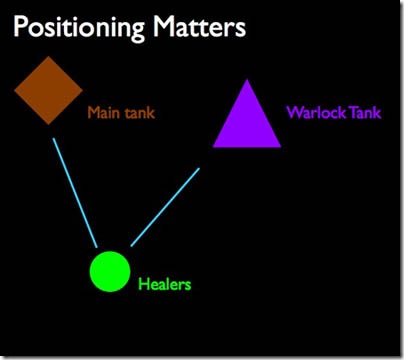
If you can, dear readers, stretch your reflective faculties for a moment and recall the first article in the Build Your Own Guild series, in which I urged future GMs to start forming an officer corps. This entry will delve a little deeper into the question of leadership and show you how to construct and maintain your guild’s hierarchy. The principal lesson here is delegate, delegate, DELEGATE! This article will show you how officers and GMs work together to govern the unique virtual organizations we so casually refer to as guilds.
History Lesson: Getting Medieval
I would like to meditate for a moment on the word “guild” and its history, as I think its origins are rather instructive for MMO players. A guild, in the medieval sense of the word, is an association of tradesmen, artists, or craftsmen. Guilds oversee the production and distribution of material goods, and they regulate both practitioners of a trade and the larger market in which that type of product is bought and sold. My favorite guild example dates to cinquecento Italy. Imagine Renaissance Venice, her canals a-stink with the smells of a thriving fishing industry, her now-white palazzi ablaze with murals in every color of the rainbow. Somewhere in the Serenissima, probably next door to the leather-curers guild or the paper-makers guild, Tiziano Vecellio runs his own workshop. He sees himself as a craftsman, rather than an artist, producing goods for sale. He is the Master, and his is the signature on most of the products. His employees, however, are also craftsmen, some of them as talented as the master, and Journeyman and Apprentices work together to create great pieces of art. Sure, Tiziano himself may be the one to sketch the Madonna’s face, but what about her hands? Guess what? Renaissance art was a cooperative enterprise, and just look at the product. Pretty fantastic, eh?

Why the long excursus into metaphor, you ask? For you, the prospective GM, the setup of your guild is your masterpiece–the way you do things at the beginning will prove to all your members that you are a capable leader, someone they can trust. But like Tiziano, you can’t go it alone. You will need help, and the end “product” that you create–namely, excellence in raiding–will be a group effort.
Choosing Officers
If you’re contemplating setting up your own build, you probably have a few people in mind for officer positions. Make sure, however, that your officer corps is not composed entirely of your best friends and your significant other. For a raiding guild, you need a balance of power, and this means bringing people into leadership positions who represent different constituencies and have different perspectives. You will also need to limit the number of officers to a manageable size–too large, and every member who’s not an officer will start to feel left out. The following are my quick tips for forming a workable officer corps.
1. Size
If you plan to focus exclusively on 10-man raid progression in Wrath, your optimal number of officers (including yourself in this number) will be three. That means that there will always be a tiebreaker vote. The percentage of officers to members will still be rather high, especially if you are a niche guild and limit yourselves down to 20 or so players. I think this model will be extremely workable in Wrath. The good news is that if you form a guild of this size, your work as GM will be much less, and you will not need to define each officer’s role to the nth degree. The three of you would each probably be capable of handling any questions your members have, and all members will know the officers personally.
For the 25-man size, the task is more difficult. I suggest either three or five primary officers (including yourself of course). Three will be just fine if you plan to also have class or role leaders to do some of the work, but if you do without them, expand up to five so that you can cover all the necessary tasks. I actually recommend against having class leaders. That model worked better in Vanilla WoW, when specs were less differentiated and there were more people to manage.
2. Diversity of Talents
All of your officers should not excel at the same aspect of the game. They should not be three healers or three dps. You should include your primary Raid Leader in the officer corps, but the other members do not have to be your best players or best strategists. One of them, at least, should be computer-savvy enough to build and maintain your website, if you cannot do so yourself. Try to find people with different interests. And yes, sometimes this means looking beyond your immediate circle of friends. Caution: it may seem attractive to a new GM to appoint as an officer someone who has been a GM in the past. Be careful–this person might be so used to leading that he chafes at just being an officer and effectively undermines the officer corps’ decisions. Have a very thorough talk with any officers with GM backgrounds so that the guild hierarchy–whatever it is–is clear to them.
3. Diversity of Perspectives
Your guild is a raiding guild, so most of your officer conversations will be about raiding, and almost all of your planning will be dedicated to raid progress. You do not, however, need to find officers who agree 100% with your vision. It is best, in fact, if officers to some degree serve as checks and balances for each other. For a real life example, in my guild, raiding is important to every one of our eight officers (yes, too many!) but within that general category, our priorities fall under several subheadings. For some real-life examples, in Collateral Damage, our Raid Leader wants everything to be well-organized, transparent, and planned out ahead of time. The officer who manages our Loot system wants all policies to be fair and all goods to be distributed equally. Our personnel officer focuses on the human side of things–she wants to make sure that no one feels left out. And me? Believe it or not, I’m always the one pushing for faster progress and stricter requirements.
4. Open Positions
When you introduce your brand-new guild to the world, you probably won’t have the perfect balance of officers yet. I suggest starting out with yourself and one other person (or for the large guild model, two) and promoting the rest of your officer corps after you actually begin raiding. You need to see how people operate in their new guild context, but you can’t do all the work alone at the beginning.
Your Management Hierarchy
Let’s imagine that your guild is up and running and you’ve identified and promoted four other people to work with you. Now what do you do? I have seen guilds flounder at just this juncture. People become officers, but it’s a vanity position. There are no clear duties and no opportunity for leadership. In practice, the GM runs the guild by himself. Or worse, no one runs the guild. No events are scheduled, and people associate with each other only in guild chat. Here are 5 ways to avoid the no-leadership quagmire.
1. Weekly Officer Meetings
Schedule a meeting at a mutually convenient time, and hold a meeting every week. Believe me, you’ll have a lot to talk about–some of CD’s run upwards of three hours, and they were longest at the very beginning. You should at the very least check in with the guild’s progress, set the raid schedule for the week, and vote on any potential recruits. This is also a good time to talk through the inevitable member complaints and make plans to address them.
2. Give Each Officer a Specific Task
You chose officers with different talents for a reason. Assuming you’re a large guild with 5 officers, here’s a sample breakdown. As GM, feel free to snap up the role you like best, but if it’s your name at the bottom of the guild panel, expect a secondary job as QQ filter. Your five officers could best divide into the following roles:
a. Raid leader and strategist
b. Loot system manager (if you use Loot Council, this person tracks drops received)
c. Personnel officer (this person takes attendance and tracks raider status/performance)
d. Recruiting officer (woot! This is what I do)
e. Website manager (don’t underestimate this one–it’s a TON of work)
As GM, you need to funnel any specific questions or complaints to the officer who specializes in that area. People will want to talk to you too, but if you get a loot-specific question, pull the loot system manager into vent with you when you talk to that player. You will find that your officers will become experts in their area of expertise.
3. Strive for Consensus
When there is a decision on the horizon, particularly if it’s an important one, don’t just flex your GM muscles and make the call yourself. Discuss any decision that has far-reaching implications in the guild meeting, and let each officer present his or her opinions. Very likely, some of you will disagree on any issue that’s halfway worth talking about. As GM, you may feel tempted to go with your own opinion after nominal discussion, but I urge you to wait it out and let people make full arguments, especially when they feel passionately about something. There should be give and take. If two parties disagree, have them propose compromise solutions until each of them can live with the new policy.
4. Hold Votes on Important Issues
Your officers can only serve as checks and balances for each other if you give them power. Try for consensus first, but what you may find is that not everyone speaks up every time a new policy is on the table. If everyone cannot agree after a reasonable amount of discussion, as GM, it is your responsibility to call for a vote. Except in dire circumstances, abide by that vote. Remember: if you have power as GM, it is only because others entrust you with it. Allowing them a voice will convince your fellow officers to stick around and support you. My guild–which has no GM, only officers–has just now put in a voting policy. We felt that compromises were sometimes worked out only among the most vocal officers, and in any case sometimes we would have 12 hours of discussion over many weeks with no solution reached. We’ve decided to hold votes after 2-4 hours of discussion on a topic when we can’t come to consensus. I am in full support of this idea–even though I’m one of the loud people! If you never vote, you may create a situation in which one person can veto any idea by holding out on the compromise. That can lead to guild stagnation, particularly if it’s a regular occurrence. Sometimes your officers will have to agree to disagree.
5. Know When to Play the GM Card
If you’re going to be the first among equals, you have to know when to step in and put an end to debate. Maybe votes are inconclusive too, or your officers just can’t come up with a decision. In those cases, use your best judgment and lay down the law. Don’t do this too often though–a GM whose attitude screams: “It’s my guild and I can do what I want with it!” won’t be in power for long.
Conclusions
It’s not very fun to be the Supreme Emperor of a nation of one. If you want a happy, healthy, resilient guild, you will need a power structure that puts some of the authority in other people’s hands. Build trust with your officers, and always treat them with respect. They are both your friends and your work colleagues, and the relative unity that the officer corps presents to the guild will determine your success or failure in endgame raiding. People want to feel that their leaders are both well-organized and fair. Use the GM/officer dynamic to create that feeling, and you’re well on your way to climbing up the rankings on your server.

.




